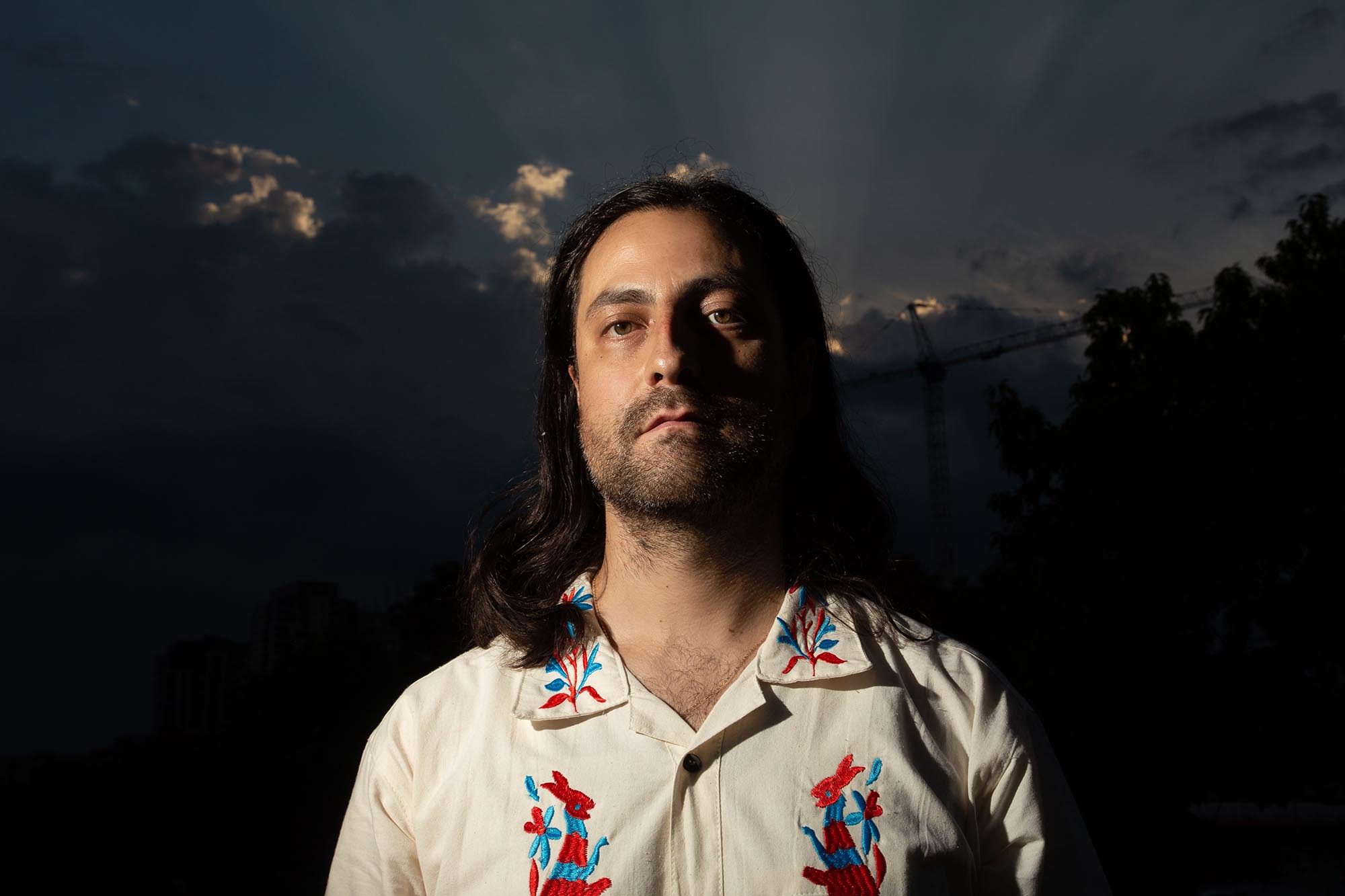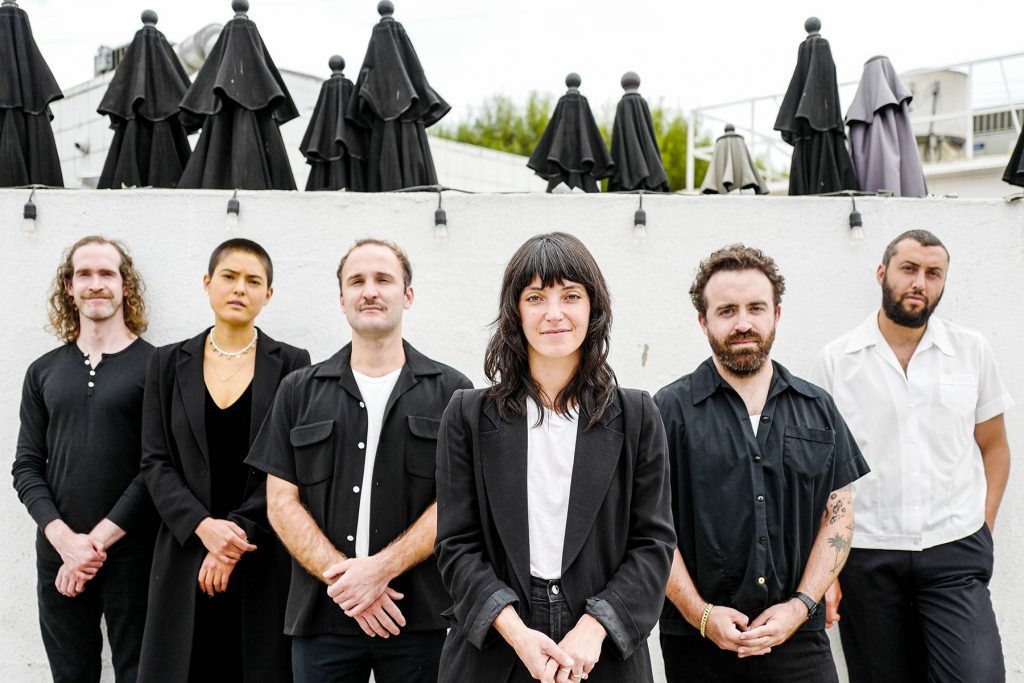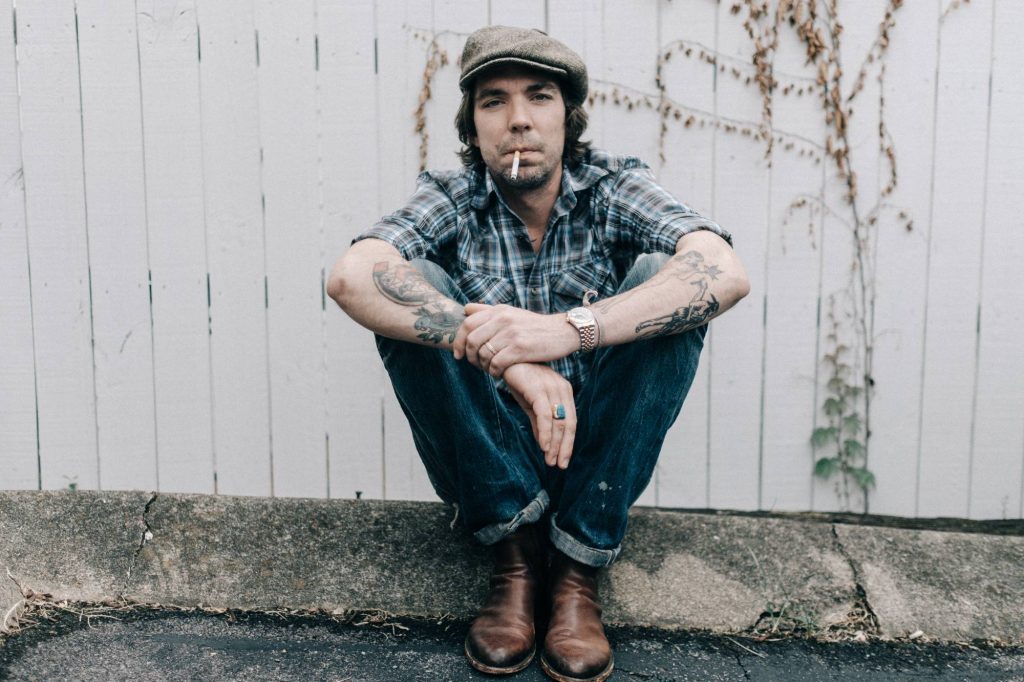
Mas Aya’s Meditative Soundtrack of Resistance
Nicaragua’s history of resistance weaves its way through Máscaras, the endlessly fascinating album from the Nicaraguan-Canadian artist Mas Aya. On the first track, “Momento Presente,” a voice slips out from a winding flute melody and urges people to stand against oppression. The audio was plucked from video footage of a Mass that the priest, poet, and liberation theologist Ernesto Cardenal held for guerillas opposing the Somoza dictatorship in the late 1970s. The samples on the syncopating cut “18 De Abril” are much more recent but just as urgent, taken from protests against the government of president Daniel Ortega that escalated in 2018 and ended in the deaths of an estimated 30 people. One person cries out near tears, “Mom, forgive me, I went out to defend my country.”
The subject matter is intense, tangled in trauma, and tied to a complex political history. Yet even while tackling such weighty themes, Mas Aya’s music never feels pedantic, strained, or overwhelming. He creates expansive, elongated soundscapes, inspired by meditative music. Throughout the project, which came out last month, he shifts the focus of rebellions and resurrections from the context of leaders and oppressors and instead centers his music directly on the people fighting to be heard. “I wanted to shed light on the people’s struggle — that this is actually coming from the people, that it’s a unified people’s movement against oppression,” he says on a recent Zoom call from his home in Toronto. He adds, “I wanted the project to have this contemplative quality, but at the same time, I wanted to compare and contrast [the music] with these more aggressive samples.”
blogherads.adq.push(function () {
blogherads
.defineSlot( ‘medrec’, ‘gpt-dsk-tab-latin-article-inbody1-uid0’ )
.setTargeting( ‘pos’, [“mid”,”mid-article”,”btf”,”in-article1″] )
.setSubAdUnitPath(“music//latin//article//inbody1”)
.addSize([[300,250],[2,2],[3,3]])
;
});
The artist, whose real name is Brandon Valdivia, has played percussion and other instruments for bands in Toronto for years. He’s perhaps best known for his work with his partner, the Colombian-Canadian artist Lido Pimienta, whom he met in the city’s experimental scene. (“That was one of the things we were able to connect on — just being like, ‘Wow, everyone here is white and from a certain type of academic background,” he recalls.) But Valdivia always made music for himself, and a few years ago, he began working on some compositions for a residency at Toronto’s Aga Khan Museum: “long jams,” he says, “where music stretched out for 10 minutes, nine minutes.” When the pandemic brought the touring he’d been doing with Pimienta to a screeching halt, he revisited the songs he’d written for the Aga Khan project and started thinking about how to rework them into what ultimately became Máscaras.
The album is deeply rooted in Valdivia’s connection to Nicaragua. His stage name, Mas Aya, is a play on the country’s western city of Masaya, where his grandmother is from, and the phrase “mas allá” which roughly translates to “farther out.” The album title means “masks,” a reference to masks worn in the region’s traditional religious festivals and rituals. The word took on a dual meaning when Valdivia started thinking about masks in the context of political movements and protests: Nicaragua’s Sandinista revolutionaries wore traditional masks in the 1970s and 1980s, while protesters in the more recent demonstrations have used all types of face coverings to obscure their identities and protect themselves. “It’s an emblem of tradition, but they’re used in this military action, and I thought that contradiction was really powerful,” Valdivia says.
Those ideas of obfuscation and disguise make their way directly into the compositions and arrangements. On songs such as the arresting, flute-driven “Quiescence,” sounds fold gently into one another — light chimes appear and then disappear, a sudden synth flourish emerges and fades out as quickly as it came. The music is effortless but complicated at the same time, and the sonic intricacies act as a mirror of the political and economic quagmires in Nicaragua that can be so hard to unravel. Valdivia visited the country for the first time years ago; he remembers seeing incredible wealth disparities, but also incredible solidarity work. In 2018, a few of his family members were jailed for participating in demonstrations that opposed Ortega, who was once a gleaming figure of the Sandinista revolution that helped overthrow the Somoza dictatorship. “All those kinds of things fucked with my brain,” he says.
blogherads.adq.push(function () {
blogherads
.defineSlot( ‘medrec’, ‘gpt-dsk-tab-latin-article-inbody2-uid1’ )
.setTargeting( ‘pos’, [“mid”,”mid-article2″,”btf”,”in-article2″,”mid-article”] )
.setSubAdUnitPath(“music//latin//article//inbody2”)
.addSize([[300,250],[300,251],[2,4],[4,2]])
.setLazyLoadMultiplier(2)
;
});
He deals with such complexities by encouraging listeners to find their own answers through contemplation and staying present. The album’s song titles refer often to staying in the current moment: “Tiempo Ahora,” or “Time Now,” for example, is a stunning track guided by Pimienta’s guest vocals, embodying the spontaneous spirit of the project. “It’s literally one take — the lyrics, the melody, how she comes in and comes out — so it’s nice and representative of this in-the-moment thing, where she’s basically improvising. It was just perfect,” Valdivia says. “We improvise a lot together, and it’s very much part of our process and our live shows, so I love how that’s what the record ended up being: improvisational. That speaks to Lido’s abilities and her talent of being able to be in the moment.”
It also speaks to the larger ethos behind Valdivia’s approach to creating music. “There’s an aspect I was thinking about related to how everything is so eternal. I know that’s getting into sort of transcendental talk, but I very much believe that there is an eternity in every moment, and that makes living in the moment and living in the now so important,” he says. That’s perhaps what makes Máscaras such a striking project: It constantly reflects, in Valdivia’s words, “the vastness of each moment and how there’s so much to fight for.”




